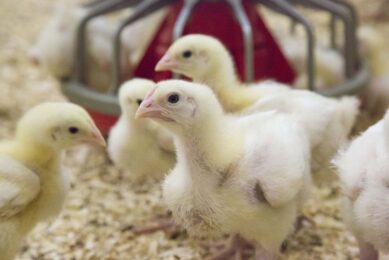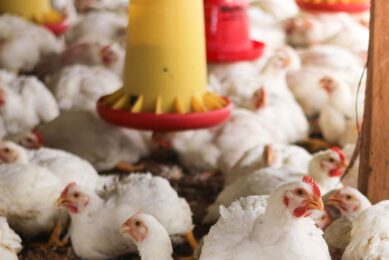Using eggs in fight against hunger and malnutrition

Egg and nutrition leaders have written to the Food and Agriculture Organisation (FAO), highlighting the key role eggs have in the fight against hunger and malnutrition in the developing world.
Tim Lambert, International Egg Commission chairman, and Dr Saul Morris of the Global Alliance for Improved Nutrition, said in a forum post that the egg seems increasingly likely to offer a practical and impactful opportunity to tackle problems of under-nutrition, which is leading to more than a third of children left stunted in parts of Africa and south Asia.
They highlighted a special supplement produced by the Maternal and Child Nutrition journal, released last month, which looks at a wealth of information on the value of eggs and feasible ways of increasing access.
Eggs’ role in the diet, child dietary diversity, eggshells for calcium
Among the papers is an overview of the role of eggs in the diet of maternal and child nutrition, there is also updated data on egg consumption, while the second summarizes how social marketing was used in a randomised controlled trial of eggs early in the complementary feeding period to foster high compliance, as well as empowerment of participants and policy change in Ecuador.
The third and fourth papers examine how a controlled intervention to foster poultry production affected child dietary diversity and nutritional status in Ghana and Zambia, while the fifth study reviews success and lessons learned from a project on small-scale poultry production to increase egg production and household egg intake in four diverse African regions.
A novel approach to use chicken eggshells to improve dietary calcium intake in rural sub-Saharan Africa is reported in the sixth paper, while the seventh reports on business models for poultry production in East Africa. Others look at how universal access to eggs might be achieved through large-scale poultry production.
Protein
The pair say in their note: “The humble egg seems increasingly likely to offer a practical and impactful opportunity to tackle these problems. Eggs are almost pure protein, of very high quality. They also provide virtually the entire Adequate Intake, for young children, of vitamin B12 and choline.
“The essential fatty acid content of eggs may be especially important in pregnancy. Nearly the whole world – with the notable exception of the vegetarian belt of India – likes to eat eggs, and they can be produced at prices which make them accessible even to the moderately poor.”
In the discussion forum, they pose a range of questions around striking the right balance between small-scale production, large-scale production and long-distance trade; different ways to increase demand for eggs, mitigating the associated animal welfare and carbon emission issues and what to do to encourage stakeholders to accelerate access to eggs in poor communities.
Among some of the forum responses was one from Teopista Mutesi, from the FAO Rwanda office, who said that as a communications officer in the field where the FAO had implemented a poultry project, he had heard some amazing testimonies “of families with malnourished children who have been fed on eggs and the results have been impressive.”
Wilma Freire Zaldumbide, of the University of San Francisco de Quito, Ecuador, added that it was important to involve people in the solution of their own problems: “There will always be a gap to bridge. Promoting egg consumption can foster people’s participation in the market whilst improving family diets. To do this, other fields – related to social organisation, empowerment or self-sustainability need to be incorporated to allow people to adopt their own solutions.”
Helene Delisle, from the Univiersity of Montreal, Canada, added that eggs are among the taboo foods for children and pregnant women in several African cultures but these could be overcome through education.”
People can log on to the discussion forum at: www.fao.org/fsnforum/activities/discussions/eggs-nutrition#comments
For more info, click here
Join 31,000+ subscribers
Subscribe to our newsletter to stay updated about all the need-to-know content in the poultry sector, three times a week. Beheer
Beheer








 WP Admin
WP Admin  Bewerk bericht
Bewerk bericht